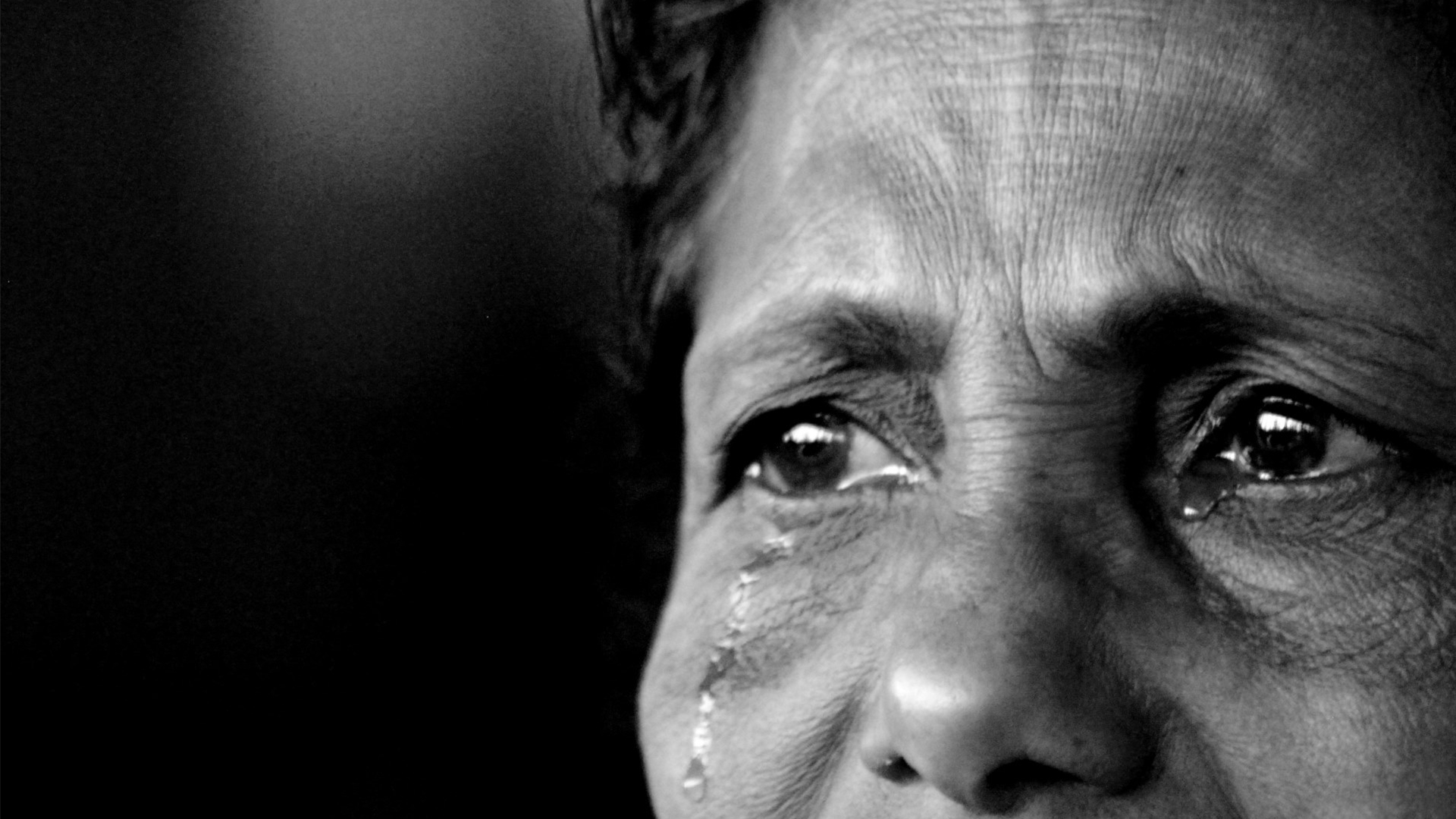Sri Lanka has long been synonymous with fine tea; witha plantation history dating back to 1862 to an export value estimated to reach US$ 2,500 million this year, the humble beverage is the island’s pride across the globe. Accounting for nearly 14% of the country’s total export earnings, it is among the nation’s most valuable and prized produce.
This journey to international fame begins in the central hills, ‘Mayarata’, as it was called, the Country of Illusions. Once thickly forested and inaccessible to humans, settlements were limited to open valleys and the city of Kandy. The British cleared these acres of virgin forest and, once their experiment with coffee crops failed, began planting tea; the rest is history.
However, history has and might continue to overlook the most important cogs in the large machine that is the tea industry of Sri Lanka; the people without whose tireless labour this process would grind to a screeching halt – the workers on the tea estates.
Descendants of South Indian labourers first sent here in the 19th and 20th centuries to work in the first British plantations, the ‘up-country Tamils’ or ‘Indian Tamils’ constitute 4.2% of the Sri Lankan population.
Over the years, they have been marginalised by the very country that they devote all their energy to. The Sinhala nationalism that fuelled the Ceylon Citizenship Act of 1948 set such precise terms of identity that even though they had lived on the island for decades, lack of proper documentation meant they were not recognised as citizens of Sri Lanka and left stateless.
A handful of agreements between India and Sri Lanka over next few decades laid out plans to repatriate some while granting citizenship to a select few. Finally, it was the J.R Jayawardene government that came into power in the 1970s that revised the Citizenship Act, adding in a Special Provisions in the form of the Grant of Citizenship to Stateless Persons of Indian Origin, accepting all remaining Indian Tamils as citizens of Sri Lanka, equipping them with a nationality and a vote.
It has been almost 200 years since the first migrant workers made the hill country their home. But is it really a home?
The ‘line’ system that exists in estate housing is the same one established in the late 19th century – a row of small houses, each more similar in size to a single room, that share a roof. These were initially meant to be temporary shelters for the workers yet estate management over the years never sought to develop the living conditions of the workers.
Each family is allocated one of these ‘houses’, meaning everyone lives in uncomfortably close quarters, severely distorting family dynamics. Should a child marry, reproduce and come to live in his/her parents’ house, as it does frequently happen, the situation worsens.
Yet the estate worker is not the owner of his house, even though it is that small. Since the plantation land belongs entirely to the estate, the worker is not provided with a deed or permit that proves that the house is his/hers. Should he plant a tree outside the line, even its fruits would technically belong to the estate management. Because of this system, where the housing comes under the control of the management, individual houses are not provided with an address. This results in administrative issues, problems for the police and issues during voting.
The lack of an address also means important correspondence doesn’t reach the house – all mail must be addressed to the estate’s head office and is distributed at the management’s convenience. Workers don’t receive time-sensitive EPF notices, students who persevere enough to complete their AL education don’t receive their university letters in time and most personal correspondence never reaches the person it was meant for.
Estates, being private lands, do not fall under the Pradeshiya Sabha Act therefore local authorities do not have the power to provide addresses in these areas as the roads too are the estate’s property; their maintenance is the responsibility of the estate.
Tea contributes to a large portion of Sri Lanka’s export revenue yet the infrastructure in place in the tea-growing regions is hardly conducive to the smooth production of the main export of the country. Taking into consideration how important transport is in the tea process, there has been no development of estate roads undertaken by the respective estate management.
This feeds into a range of obstacles in the worker’s daily life. Walking from their line house to the particular area of the plantation they are required to work at, both places sometimes on two different hills, is laborious enough without the badly-maintained road. The walk back after a day’s backbreaking work is hellish.
Classes in estate schools are limited and students who wish to study further have to go into the main town. Hospitals, long since neglected, are not adequate for all emergencies and again, they are forced to resort to services in the town. Access to these are made additionally time-consuming because the roads are so badly damaged and the limited bus services available to estates are irregular.
Youtube link goes here…
Estate schools extend to Grade 5 or Grade 9 in most cases and students who wish to study beyond that resort to making the journey from the estate to the closest city to complete their education. Kids talented in sports or the arts don’t have as many options for progression in their fields as a child in the town would. While most schools would employ teachers who are specialists in their subjects to teach children, some of the young women appointed to estate schools only have an Advanced Level qualifications.
“There’s one bus; if they miss the one bus to school then the children have to walk between the tea bushes, on trails that are so steep and jagged that it’s life threatening. So, most often, they stop going to school. Children start working on the estates early or get married at a young age and have families of their own. Because these conditions are so bad, most government teachers appointed to estate schools don’t even come to teach for so long – they prefer places where they are familiar with the culture and where conditions are not so harsh. These schools are just forgotten.”
Though there are hospitals buildings in the estates, most of them have fallen to disarray after years of neglect and those that do function can only administer treatment for the most basic ailments. Surgeries and delivery of babies has to be done by trained doctors in a town hospital.
“She’s pregnant now and when my wife has to give birth, it will be very difficult for us. I have to take her almost 40 kilometres away to the hospital in the main town at the bottom of the mountain along these roads that are so damaged, the journey will be very uncomfortable for her.”
Health issues are constantly mounting in the cramped living conditions. A single line with five or so houses share a wall and with more than five people living in a single room, contagious diseases spread rapidly. In addition, most estates don’t have a proper toilet system for the inhabitants of the line houses to use. Water distribution in some plantations is such that the same water used by lines higher up the mountain makes its way down a channel to the lower divisions and the individuals there are left having to use water that is far from pure. Even in places where this particular system is not used, irregular water distribution methods and lack of basic hygiene facilities contribute to prevailing health dilemmas.
The options available to women who wish to work outside the estate are very limited. Aspiring to reach greater heights than the generations before them, idealistic women look for jobs in Colombo – working in someone’s house or in a garment factory. Their other option is to look for labour work abroad, which they sometimes find difficult to adjust to because of the culture differences. Eventually, most of them return only to marry and begin their own families and start, inevitably, working on the estate.
Though some do make these journeys, some fall into the cycle of the culture and are married as soon as they come of the legal age. Young brides bear children at a young age and are thereby compelled to stop schooling to take care of and provide for the children.
The consumption of alcohol by men, to beat the cold of shivering temperatures around the mountains and as an antidote to a day’s hard work, has resulted in an increased number of cases of violence against women and children.
This habit has spread among the women too. Because the communities consume illicit alcohol that is not manufactured properly, sickness results.
To approach the relevant authorities that could possibly help address their concerns is also difficult for the workers; even though the communities are Tamil, government agents appointed to offices in these areas are mostly Sinhala and the language barrier creates more confusion. Police stations, hospitals and other entities working directly with the people are not able to communicate using the language of the region’s majority.
This is one of the many factors that contribute to lack of proper documentation in the estate communities. Birth certificates are not issued or don’t carry accurate information, individuals do not have national identity cards and when couples marry, they do not seek to obtain a marriage certificate. Lack of awareness of the administrative procedures due to being cut off from society reinforces these inactions.
Tea country is a maze of bushes set on the face of steep mountains, along trails of jagged ground that drop sharply down the slope. The prevailing chill and freezing cold at some times of the year make for a challenging climate on the best of days.
Manufacturers will justify the use of human labour for the tea-plucking process due to the need for meticulous attention to detail in the quality of the leaves that result in a world-class beverage.
The average wage an estate worker is paid is Rs. 600 for 21 complete days of work.
However, superintendents hold back in giving work, asserting that the leaves are not yet ready for plucking; this means some workers can’t fulfil the quota and thereby have their pay reduced. Estates have taken to hiring workers on a ‘temporary’ basis, where they are paid by the kilogram at a rate that is much lower than the wages of the permanent worker; all far too little considering the harsh working conditions and the denial of any other labourer benefits to the workers.
This is where the youtube link goes…
Over the years, the estate Tamils have been a community marginalised by the state and mistreated by the corporations that employ them. The distance from an estate to the nearest town and the tight working schedules helps the estate management to keep them cornered from and uneducated about society. Unions, who should be advocating worker’s demands for benefits, shy away from their responsibility due to political influence. These workers have not been made aware of the benefits they should be receiving as employees and rights they are able to exercise as citizens of Sri Lanka.
The Centre for Policy Alternatives has worked with local government on gazettes and policies to develop estate roads, provide addresses to these communities and to furnish several individuals with identity cards. Information and anecdotes were gathered during a field study carried out during the months of March and April in estates across the Central and Uva provinces.
Text and photographs by Amalini De Sayrah.






























